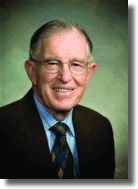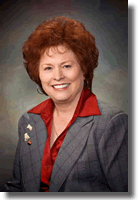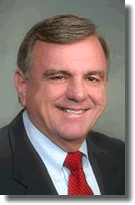
[Source: Pete Aleshire, Payson Roundup] — The closure of Tonto Natural Bridge State Park this week provoked a flurry of public outrage, angry volunteers, muddled explanations, contentious meetings, collapsing budgets and blame-shifting lawmakers. By the time the rhetorical smoke had cleared, all three of the Rim Country’s legislative representatives had sworn to push for the reopening of the park as soon as possible. However, they largely sidestepping blame for the draconian budget cuts that forced the state parks board to plan closure of more than half of its 27 parks — including the Rim Country park showcasing the world’s largest travertine arch.

The action this week took place first at an overflow public meeting in Payson on Tuesday attended by representatives Jack Brown and Bill Konopnicki, followed by a vigorous arm-twisting session in the Phoenix office of Sen. Sylvia Allen on Wednesday. The state parks board had unexpectedly closed Tonto Natural Bridge to shift staff to other parks while contractors do roof and structural repairs on an historic building that’s been leaking badly for so long that it has suffered structural damage. The three state lawmakers vowed to get the park open before summer either by pressuring the parks board to fence off the crumbling lodge during the $600,000 construction project or by postponing repairs. They each denounced the parks board’s decision as “political,” but none directly addressed the impact of the legislature’s decision to take $34 million from various parks’ funds — nearly $30 million more than the general fund contributes to park operations.

Instead, the lawmakers criticized the parks board for “playing politics” by closing a popular, nearly self-supporting park like Tonto Natural Bridge, which draws about 90,000 visitors annually and contributes an estimated $3.5 million to the local economy. “We have to get this park opened back up,” said Rep. Konopnicki (R-Safford) at the town meeting held at the Best Western Payson Inn, which drew an overflow crowd of 150. “I just can’t understand what the parks board was thinking … It’s politically motivated to make people yell at the legislature,” he said. [Note: To read the full article, click here.]

